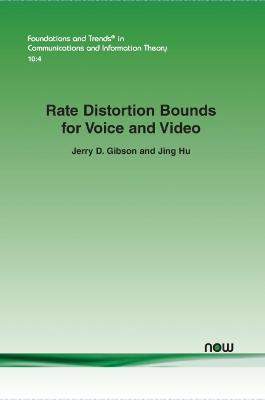Foundations and Trends (R) in Communications and Information Theory
1 total work
Rate Distortion Bounds for Voice and Video
by Jerry D. Gibson and Jing Hu
Published 18 February 2014
Numerous voice, still image, audio, and video compression standards have been developed over the last 25 years, and significant advances in the state of the art have been achieved. However, in the more than 50 years since Shannon's seminal 1959 paper, no rate distortion bounds for voice and video have been forthcoming. This volume presents the first Rate Distortion Bounds for Voice and Video that actually lower bound the operational rate distortion performance of the best-performing voice and video codecs. Recently there has been much concern expressed about the gap between lossy compression theory and practice.
Rate Distortion Bounds for Voice and Video specifies, for the first time, this gap for voice and video, and points the way forward to improving the performance of practical voice and video codecs. Recent results on obtaining rate distortion functions for both voice and video sources are presented, which overcome past limitations on source modeling by employing composite source models to achieve more accurate modeling of the different voice and video source modes. This is essential reading for researchers in Information Theory and Signal Processing working on theoretical and practical aspects of data compression.
Rate Distortion Bounds for Voice and Video specifies, for the first time, this gap for voice and video, and points the way forward to improving the performance of practical voice and video codecs. Recent results on obtaining rate distortion functions for both voice and video sources are presented, which overcome past limitations on source modeling by employing composite source models to achieve more accurate modeling of the different voice and video source modes. This is essential reading for researchers in Information Theory and Signal Processing working on theoretical and practical aspects of data compression.
